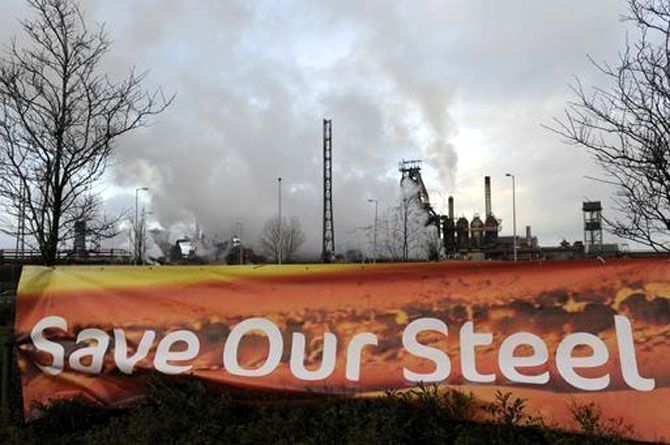The $12.1 billion Corus acquisition-the biggest global acquisition made by an Indian company-ended up as a millstone around Tata Steel's neck, points out Indrajit Gupta.

Ever since the Tata Steel board took the call to sell its haemorrhaging UK assets last month, old Tata Steel hands in Jamshedpur have been heaving a sigh of relief.
When the deal was done in 2007, there were many insiders who felt their role would be substantially diminished. After all, the Tatas were buying an entity that was nearly four times the size of Tata Steel.
As it turned out, the $12.1 billion Corus acquisition-the biggest global acquisition made by an Indian company-ended up as a millstone around Tata Steel's neck. And it remains a case study of how not to craft a global merger and acquisition (M&A) strategy.
Timing is everything: In the early 2000s, the strategy team at Tata Steel had identified a number of potential M&A deals from the US, Europe and Asia. Corus was then a penny stock and available for 10 per cent of the value that Tata Steel eventually paid for it.
Apparently, this was the transition period between J J Irani's reign and before B Muthuraman took over. And there was no consensus on the globalisation strategy. L N Mittal's acquisition of Arcelor in 2006 may have galvanised the Tatas. But by then, the commodity cycle was at its peak. And asset prices had zoomed.
Know when to withdraw: Tata Steel had signed a negotiated deal with the Corus management. A few months later, Brazilian steel maker CSN made an entry with a higher offer. And the Corus board proposed an auction. Now, participating in an auction is akin to a frog in a boiling water.
Since the price moves up only marginally, the impact is often hard to gauge, and before you know it, you could end up getting scalded. In any case, insiders suggest that by then, it had become a prestige issue. It eventually paid 30 per cent more than the original negotiated price.
Show me the cash: In hindsight, doing an all-cash deal funded by debt may have been a big mistake. For one, a part stock deal may have softened the blow a fair bit. And by allowing the incumbent management team to sell out their stock options-the then CEO Philippe Varin made £10 million as part of that deal-eliminated their residual interest in the business.
Due diligence is key: It is true that the Tatas may have gone in with their eyes open that the underperforming UK assets could prove to be problematic. But it isn't clear if they knew the full extent of the situation-or indeed, how to fix it.
As a former Tata Steel strategist avers, the UK assets had seldom generated a surplus over a decade. Their underperformance was masked by its well-run Dutch operations at Hoogovens.
Kid gloves won't work: After taking over, the Tatas chose a hands-off strategy. And left it to the incumbent group CEO, Mr Varin, and his team to independently run operations for the first two years. McKinsey & Co christened this as a new Asian style of integration. No 100 day plans. No integration teams swooping down on their conquests.
The Tatas earned tonnes of goodwill, as humane folks who thought long-term and weren't cost-cutters. Except that the price of that approach showed up a decade later, when losses in UK exceeded a million pounds a day. No wonder that the Tatas had to sell part of its assets earlier this week at a nominal value of £1, with all the debt still on its books.
Cut your losses quickly: That the UK assets were spiralling out of control and needed decisive action was all too evident by 2012. Yet the Tatas chose to soft-pedal, restraining its leaders from taking too hard decisions and actually confronting the unions.
The rationale: Tatas had many other business interests in the UK-and any wrong move would have an impact on its other businesses. It partially mothballed assets in Teeside, sold off a bit to a Thai buyer, SSI UK, but there was no solution to the endemic structural uncompetitiveness of UK steel.
The only option was to shrink the operations, and hold its operating team responsible for driving profitability. Instead, insiders say it gave a long rope to a former ThyssenKrupp discard Karl Kohler, who as CEO, promised the board that a turnaround was imminent. Finally, in February this year, the board gave Mr Kohler the marching orders.
During this same period, the mantle of leading the Tata group moved from Ratan Tata to Cyrus Mistry. And perhaps, the decision not to put the assets on the block sooner may have had something to do with that transition. After all, the Corus acquisition was one of the biggest legacies of the Ratan Tata era.
Indrajit Gupta is co-founder and director of Founding Fuel, a learning platform that aims to serve a community of entrepreneurs
Photograph: Rebecca Naden/Reuters







